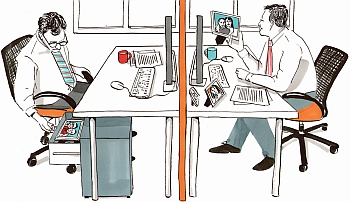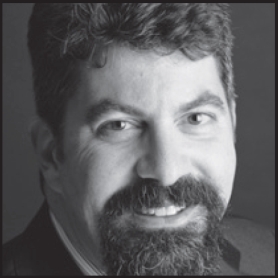It’s not often the CEO of Apple and a Canadian figure skating champion are referred to in the same sentence, but in 2014, both came out as gay. And both offer lessons for a legal profession that hasn’t always been prepared to deal with diversity head on, but that in Canada at least is taking important steps in the right direction.
First, Tim Cook. When Apple’s CEO disclosed that he is gay in an October 2014 essay in Bloomberg Business Week, he noted that “plenty of colleagues at Apple know I’m gay, and it doesn’t seem to make a difference ... Of course, I’ve had the good fortune to work at a company that loves creativity and innovation and knows it can only flourish when you embrace people’s differences. Not everyone is so lucky.”
No kidding. In June 2014, John Browne, former CEO of British Petroleum (BP), became the first chief executive to publicly acknowledge that he was gay in his memoir, The Glass Closet. He had actually been outed by a British tabloid and told a New York Times reporter that “my greatest regret in life is that I wasn’t honest while I was chief executive.” That might have been easier said than done for someone like Lord Browne of Madingley, though, who is 66 and had to deal with the insidious discrimination of a different era.
Perhaps ironically, then, it’s the push for corporate uniformity that may actually have some of the most immediate positive impact on the business and legal communities. For example, when CI Financial went public on the New York Stock Exchange in August 2014, its CEO, Trevor Burgess, got to ring the opening bell. No big deal there. But in the requisite filings with the Securities and Exchange Commission, the company disclosed that Burgess has a husband, who also owns shares in the company. It’s Modern Family: corporate version.
On the other hand, if a June 2014 Globe and Mail article on “What it’s like to be gay on Bay Street” is anything to go by, things haven’t necessarily moved that far forward. Despite positive and encouraging messages from high-profile CEOs, it’s still the “subtle, day-to-day stuff that matters most.” Disclosing what you did with your significant other on the weekend, or having a picture of him/her on your desk isn’t for most a career-limiting move. Nor should it be. Yet the article concluded that “Consulting firms are typically very supportive; law firms often fall somewhere in the middle; investment banking and trading are often very rigid.”

One hopes that initiatives like the Law Firm Diversity and Inclusion Network can move that needle. On May 22, 2013, 16 of Canada’s largest law firms signed a Statement of Principles, agreeing to “promote diversity and encourage a culture of inclusion not only inside the firms, but in the broader legal profession as well.” Perhaps more important was the list of contacts attached to the press release: national managing partners, chief professional development officers, recruitment directors and others in positions of influence. These are the leaders and mentors who will set the tone, direct the initiatives, and ultimately hold their colleagues accountable.
Maybe someday this will all be a non-issue, but it’ll take work and leadership to get there. Figure skater Eric Radford, silver medalist in pairs at the Sochi Olympics, commented, “It’s funny because there have been so many athletes coming out now that I can imagine the headline ‘Figure Skater is Gay’ and people will be like, ‘So what?’ But I know that it matters, and if it can make a difference then I want to do more with my career and my talent than just skate.”
For Cook, trading his privacy was worth it if “hearing that the CEO of Apple is gay can help someone struggling to come to terms with who he or she is, or bring comfort to anyone who feels alone, or inspire people to insist on their equality.” For the 16 Canadian law firm signatories, and for their LGBT partners and associates, that means getting company soon.
Paul Paton is the Wilbur Fee Bowker Professor and Dean of Law at the University of Alberta. He can be reached at [email protected].




